This is an extension of this question which from what I can tell now works in EF6. However, it seems as though there's a problem when you've got subclasses which have both shared and unshared properties.
Let's say this is my model setup:
public abstract class Document
{
public int Id { get; set; }
public string NameOnDocument { get; set; }
}
public class BirthCertificate : Document
{
public string RegistrationNumber { get; set; }
}
public class Licence : Document
{
public string LicenceNumber { get; set; }
}
In the database, I want BirthCertificate.RegistrationNumber and Licence.LicenceNumber to share the same column, Number. As such, I'm setting up my model like this:
protected override void OnModelCreating(DbModelBuilder modelBuilder)
{
base.OnModelCreating(modelBuilder);
// Document - base class
modelBuilder.Entity<Document>().HasKey(d => d.Id);
modelBuilder.Entity<Document>()
.Property(d => d.Id)
.HasDatabaseGeneratedOption(DatabaseGeneratedOption.Identity);
modelBuilder.Entity<Document>()
.Property(d => d.NameOnDocument)
.HasColumnName("Name");
// Birth certificate
modelBuilder.Entity<Document>().Map<BirthCertificate>(map =>
map.Property(c => c.RegistrationNumber).HasColumnName("Number"));
// Licence
modelBuilder.Entity<Document>().Map<Licence>(map =>
map.Property(l => l.LicenceNumber).HasColumnName("Number"));
}
When I generate the database, it all looks and works as expected:

Now for the issue at hand. Let's say the Licence entity also needs to record an expiry date; so I add that in as follows:
public class Licence : Document
{
public string LicenceNumber { get; set; }
public DateTime ExpiryDate { get; set; }
}
Now when I regenerate the database, it looks like this:

What's more, if I try to insert a licence and a birth certificate, I get the following exception:
An unhandled exception of type 'System.Data.Entity.Infrastructure.DbUpdateException' occurred in EntityFramework.dll
Additional information: A value shared across entities or associations is generated in more than one location. Check that mapping does not split an EntityKey to multiple store-generated columns.
I can understand why that exception is raised - because the database is useless.
What have I missed?